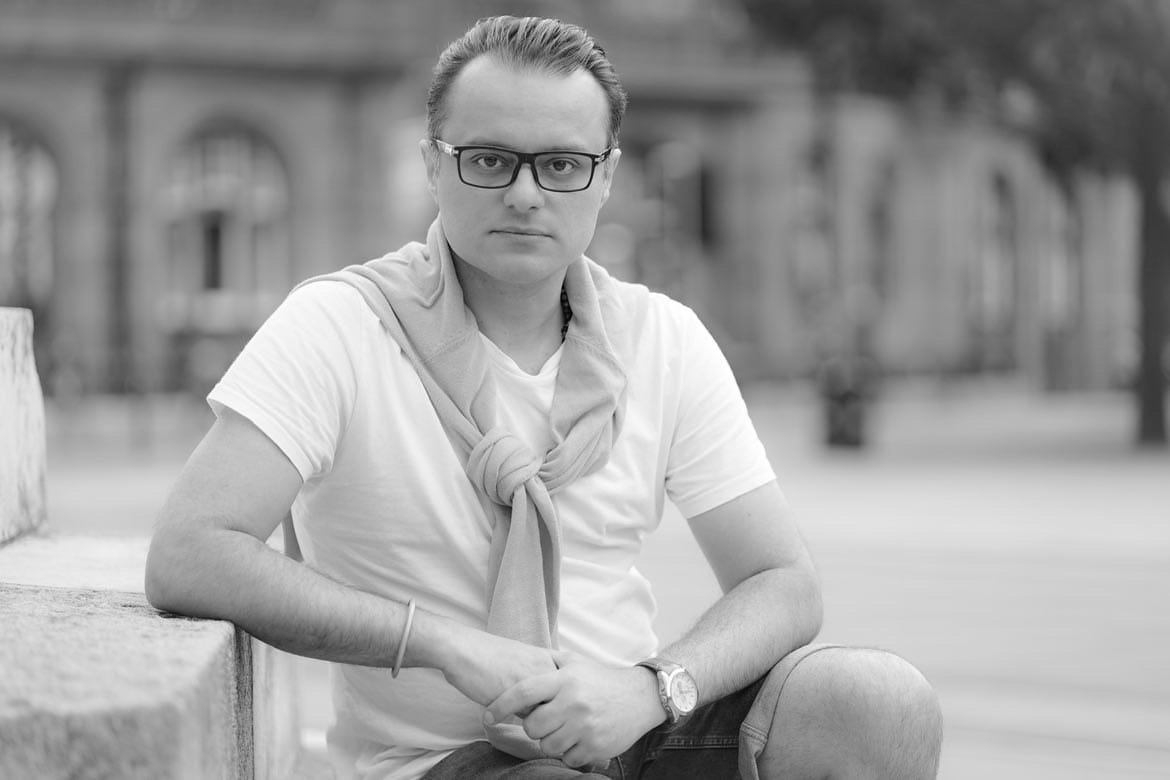Captured, Not Created
Through Reza Amelipour’s lens, women don’t just see themselves — they reclaim their reflection.
Reza might be one of the most soulful photographers to emerge from Iran's creative diaspora. Originally from Rasht, a lush, forested city in the north of Iran, he moved to England in January 2020. His work has appeared in renowned publications such as Vogue. Soft-spoken and deeply respectful, he speaks with heart and soul — qualities that unmistakably echo through his photography.
A Lens with Soul
Seated across from me in a quiet coffee shop in Manchester, sipping his coffee beneath a slate-grey sky, Reza doesn’t give off the air of a typical portraitist. Instead, there’s something poet-like in the way he speaks.
“Photography has taught me to look deeper — not just at others, but at myself,” he says. “Sometimes the camera knows you better than you know yourself.”
Roots in colour and cinema
Reza's story begins in Rasht, a northern Iranian city where forest, mountain, and sea exist in quiet harmony. He went on to study photography at the Young Journalists Club in Iran and trained in filming at the Soroush Multimedia Corporation. Over the years, he also taught photography at a university of applied sciences in Rasht, mentoring aspiring image-makers before eventually founding his own studio, Notab.
“My childhood was colour. But strangely, almost all of my early photos were black and white. I think I needed contrast.”
His father, a cinema projectionist, introduced him to a secret world of cinema — American thrillers, rare Japanese dramas, French noir — films that were often censored or hard to find in 1980s and ’90s Iran. They found their way into the family living room, transforming it into a private theatre night after night.
“Every night, the living room would turn into a movie theatre. I was eight. It was magic.”
Photography arrived soon after.
“I bought my first camera when I was around eleven. Nothing special. But it changed everything.”
The quiet rebellion
Despite family pressure to pursue medicine (“I was meant to be a doctor. It was the honourable path”), Reza quietly nurtured his lens-based love affair.
“She believed in me,” he says of his wife, Aylin. “She told me, ‘You see the world differently — go show it.’”
Before moving to the UK, Reza's work was already gaining international attention. His photographs received awards from festivals in Turkey, France, Macedonia, India, Bulgaria, and beyond.
Redefining beauty
When asked what beauty means to him now — especially in the women he photographs — he pauses.
“Maybe when I was a younger photographer, I focused more on the face. On bold makeup, dresses, posing. That was the classic idea of beauty. But now? It’s completely changed.”
“It’s not just about your face. Or your clothes. Or even being seen. It's about presence. Energy. The emotions behind the eyes.”
Reframing womanhood
“I was raised by women. My mother, my aunt, my grandmother. But they always felt... delicate. Fragile.”
Reza speaks with reverence — not romance — when he talks about women.
“Through my lens, I started to see not just beauty, but strength. And not the loud, obvious kind. A quiet strength. A resilience that had gone unnoticed for generations.”
He continues:
“Women have been suppressed throughout history — their stories edited, silenced, or told by others. But now, they are taking ownership. They are discovering who they are, and owning that power. And I get to witness that transformation.”
“Sometimes I show a woman her portrait, and she pauses. They notice something they hadn’t recognised before — a version of themselves that feels both familiar and newly powerful. It’s like looking in a mirror that reflects their essence, not just their features. In that recognition, there’s a kind of emotional healing.”
“That,” he says, “is what I want to capture.”
Reflections through the lens
Reza often speaks of his camera as a mirror — not just for others, but for himself.
“Sometimes I photograph couples, and I learn love from them. Each one teaches me something. I remember their names, their styles of affection. After 500 shoots, I feel like I carry 500 stories inside me.”
Legacy in the lines
“He was alone on New Year's Day,” Reza recalls of his grandfather.
“I visited him. He was sitting, drinking tea, talking about life. I saw his hands — so many lines, so many stories. I took a photo of them.”
“He asked, ‘Why my hands? Not my face?’ I said, ‘Because your hands are your story.’”
That photo now hangs in several family homes. “That’s the portrait I’m most proud of. It holds something time can't erase.”
Memory, migration, and colour
Even now, living in the UK, Reza’s Iranian roots continue to shape his lens. “I think I’m always mixing my past with my present. British skies with Persian memory.” He once worked primarily in black and white. Now? “I seek colour in everything. Maybe because I miss it.”
The wellness within his work
He believes beauty is no longer about youth or flawlessness. “We live in a world trying to erase age. But wrinkles? They’re not flaws. They’re maps. They tell the story of a life lived.”
His work has been exhibited in countries including France, Macedonia, Spain, and Iran, and featured in international photography catalogues and festivals. Whether photographing a quiet portrait or contributing to a global exhibition, Reza brings the same emotional depth and gentle precision to every frame.
From what I can see, he’s already doing just that.
And perhaps that’s the wellness Reza offers to the world: not through advice or affirmations, but through honest, quiet witnessing. His camera becomes a mirror — not just for what we look like, but for who we are beneath it all. In a world that rushes us toward filters, perfection, and performance, his portraits offer something gentler: stillness, reflection, truth.
Watching him work, you begin to realise: this isn’t just photography. It’s a kind of therapy. A silent conversation between the self we show the world, and the one we’ve hidden away. His lens doesn’t just capture people — it brings them home to themselves.
What I took away from this conversation with Reza wasn’t just about photography — it was about how powerful it is to feel truly seen.
We’re so used to curating ourselves for the outside world, but Reza’s work doesn’t ask for performance. It doesn’t care about filters or perfection. It captures you as you are — and somehow, that’s even more beautiful.
There’s something refreshing about someone who can hold up a mirror and say, “This is you. And it’s enough.”
💛 P.S. Just a little note from me...
Gina’s Koffee Note will always have space for thoughtful, free content — but if you’ve been enjoying the stories, interviews, or just the quiet moments we share here, becoming a paid subscriber is a lovely way to support this space.
It helps me pour more time, energy (and coffee) into creating the kind of content that feels good to read — slow, thoughtful, real.
No pressure at all — just an open invite, if and when it feels right. Think of it like topping up the coffee jar, so I can keep brewing stories worth sipping.
👉 Upgrade to paid




You truly amazed me with your words and your incredible gift for expressing emotion.
Your writing and the depth of your heart left me in awe.
Very inspiring individual, and a brilliantly written interview!